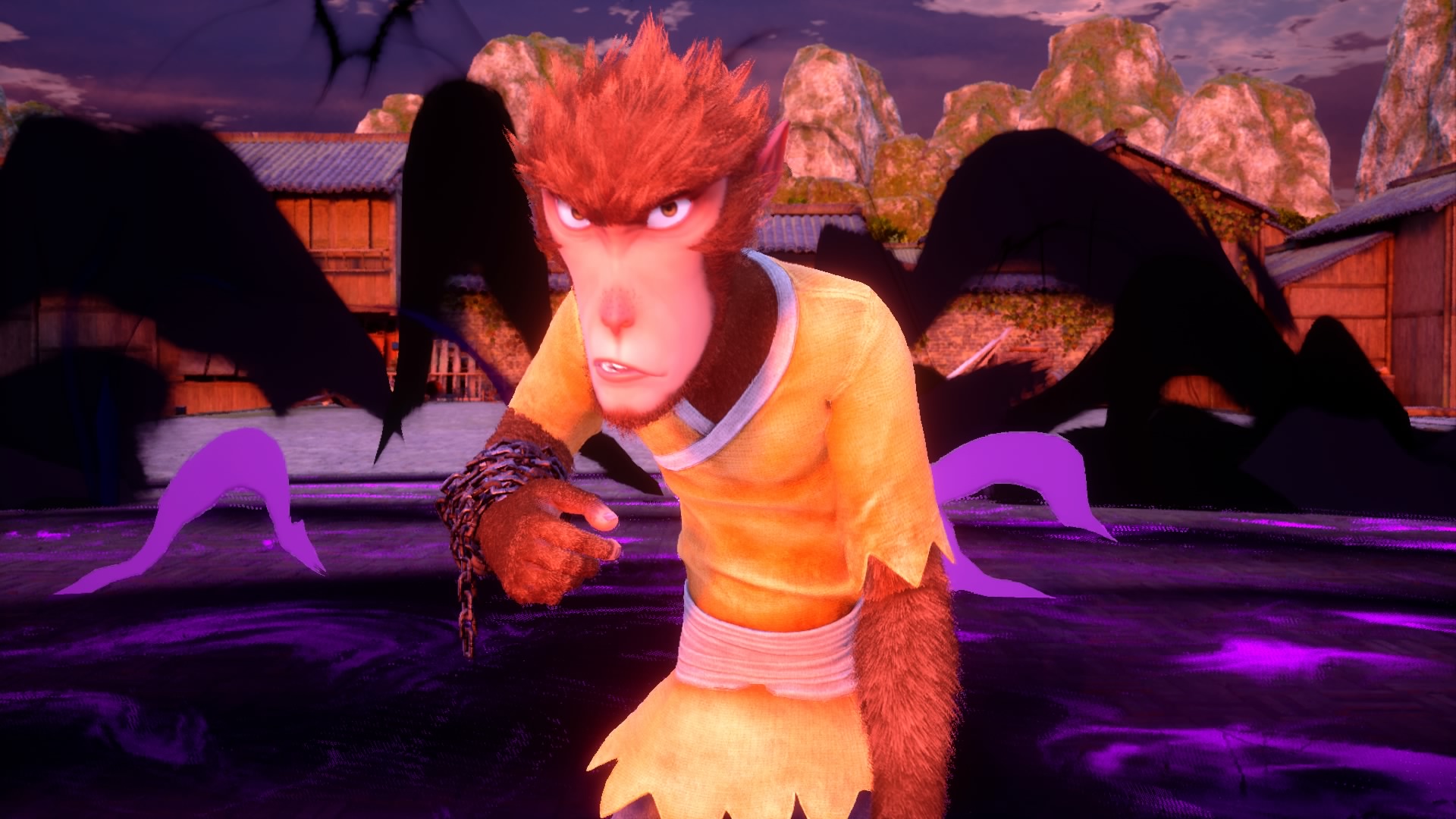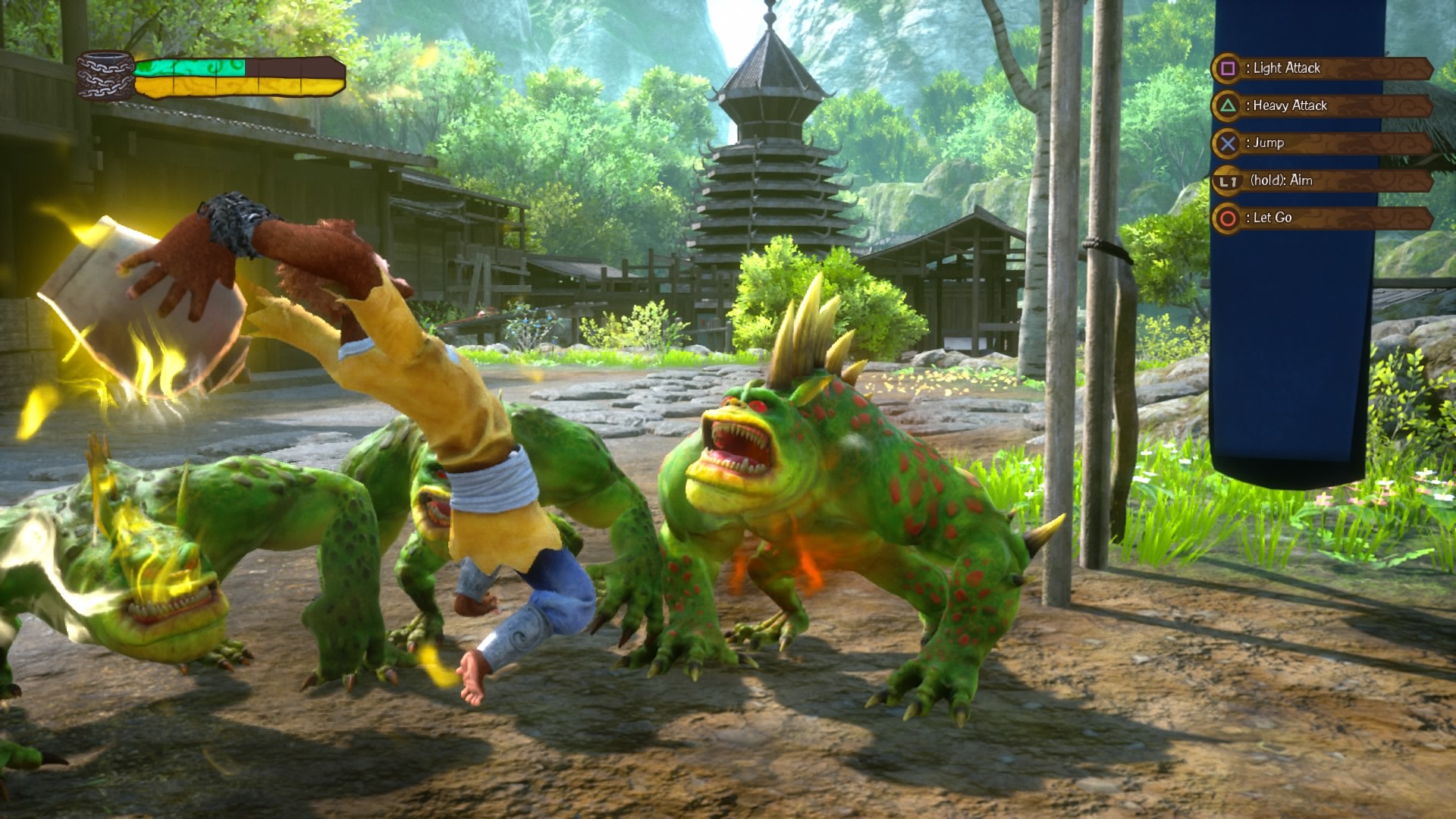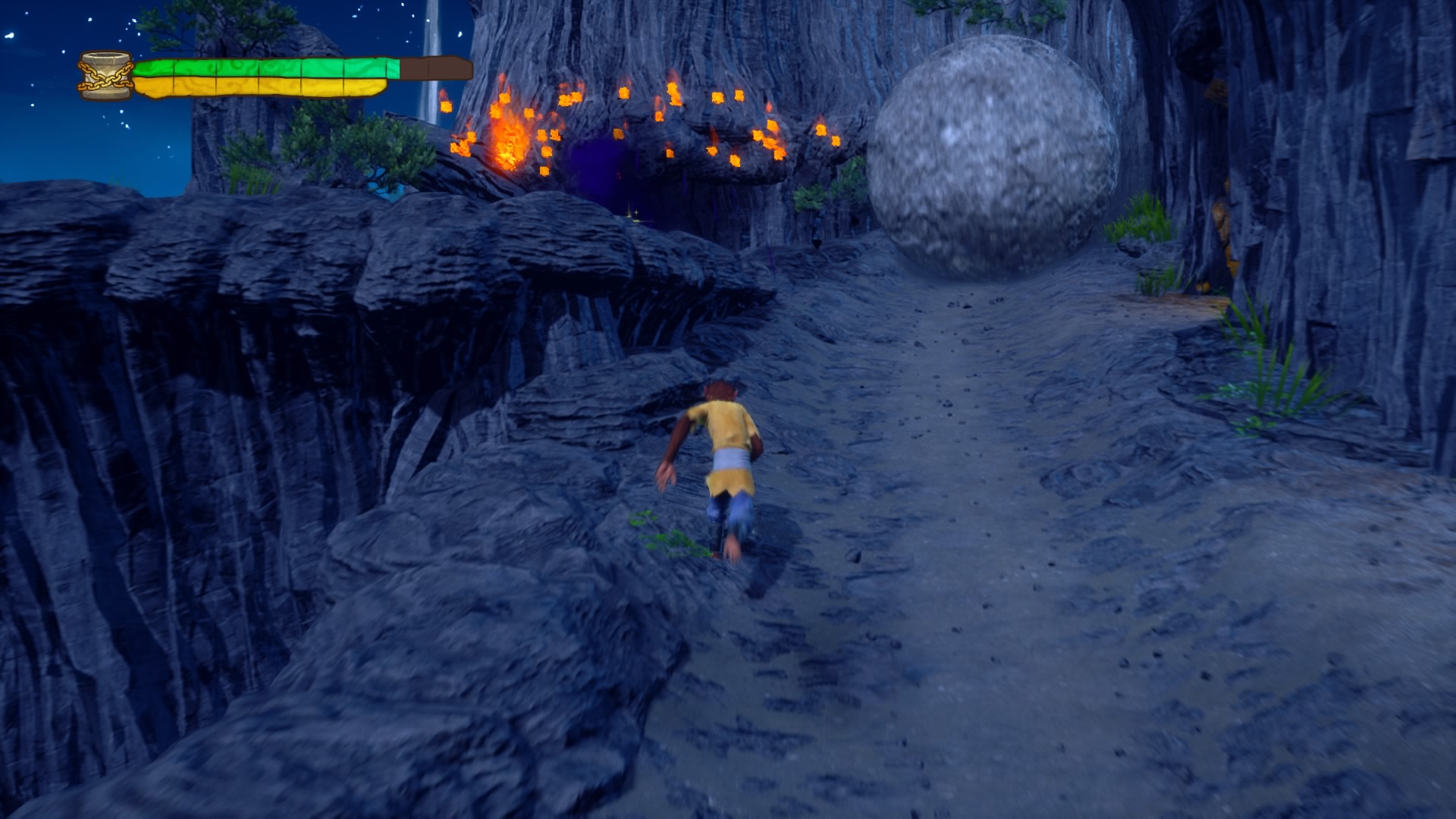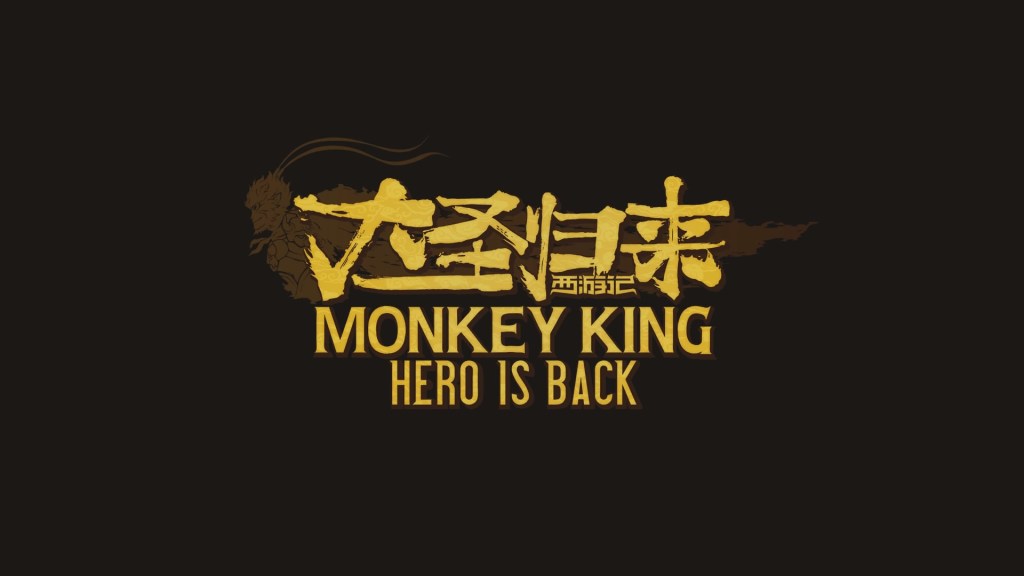There’s something exciting about playing a game from China. I’ve gone through several smaller games from Chinese developers that have released in the United States, such as ICEY or Poi, and I always found them to be a weird match of ideas not quite put together in a way that other countries do. I’ve grown to almost love it; even at their worst, at least they always felt unique. Monkey King: Hero is Back is a AAA console game coming out of China, and I’m almost worried that some of that charm will be lost. So I dove in. Is the hero truly back, or is this just an imposter?
An adaption of a popular 2015 animated movie of the same name, Monkey King: Hero is Back starts with a cutscene that introduces the main character as Sun Wukong. For the rest of the game, everyone calls him Dasheng, which is never explained in-game and I had to have a friend explain to me that it’s a title Sun Wukong gave himself in the classic story Journey to the West. After waging a war with Heaven, Dasheng is defeated by Buddha and imprisoned. One day a child named Lieur comes across his prison and accidentally sets Dasheng free. However, Dasheng can not get his powers back until he has done more good in the world to make up for his crimes. Conveniently, around this time a monster lord named Hundun begins abducting children to sacrifice and make himself immortal, so Dasheng now has a goal.
The story itself is a perfectly fine and charming animated movie affair, which makes sense considering what it’s based on. However, the pacing of the game itself is all off. Of the 10 total chapters, it takes about six before the plot really becomes apparent. It feels like so much time is spent on build-up to the actual plot, and then once it shows up, the plot just gets sped through as quickly as possible. There are very few characters, with only the three mentioned before and a pig-man named Bajie that follows the group around, and there’s almost no development for any of them other than Dasheng.
This Monkey Actually Wants Trouble

Oddly enough, Monkey King: Hero is Back plays like a PlayStation 2 game that accidentally stumbled into the wrong era, something that is equal parts fascinating and frustrating. You have a three-hit light attack combo (which you can upgrade with more hits) and a single-use heavy attack. There aren’t any actual combos outside of the single light combo, which is a weird choice. Dasheng can also pick up objects like benches, staves, and vases to change up how he fights or to throw at enemies, offering a few more options. As the game advances, Dasheng also gains access to several magic abilities. You have a magic bar that you can spend to do things like creating a pillar of fire around you, summoning needles to shoot at enemies, and performing a flurry of kicks. It’s a good chunk of abilities, but I honestly found them a bit too difficult to set up in a way that felt satisfying, and it was almost always easier and more effective to just punch things to death.
The real depth to the combat system is supposed to come from the bunch of context-sensitive actions that make up the game. The most important is One v Ones, which happens any time you perform a light attack at the same time an enemy performs an attack of their own. If you do this successfully you’ll enter a little button tapping minigame. Win that, and Dasheng will defeat the enemy with a comically over-exaggerated animation that would fit just fine in a Jackie Chan movie; which makes sense considering the game is based on a Jackie Chan movie. These little bouts quickly became the highlight of the game for me.
Watch Your Head

However, there are also a bizarrely high number of mechanics that are just straight-up never explained to the player that probably could have made the combat a little deeper had they been aware of them. There’s a move called Purification that you can use by activating a heavy attack when an enemy attacks. Pulling one of these off does a ton of damage and also heals you. If you throw benches at opponents they’ll get caught juggling them, allowing you to run up and perform a special attack. Sometimes enemies will get knocked to the ground and if you use a heavy attack on them then you’ll do a ground pound. Rarely, an enemy will drop a purple Chinese symbol that puts Dasheng into a rage mode that makes him attack faster, deal more damage, and regenerate health.
Perhaps the most oddly unexplained-yet-genuinely-interesting combat system is an enemy’s anger level. Every time you hit an enemy you make them a little more angry, represented by a red aura around them. Get them to max anger, and enemies’ attacks will actually hurt other enemies. Some enemies, like the boar demons that serve as occasional minibosses, even have special attacks they only use at max anger, such as one where they’ll pick up any smaller enemies hanging around the arena and try to smash you with them. It’s a creative system, and for the life of me I can’t figure out why it was only explained to me during a loading screen tip near the end of the game.
While making use of the weird battle system quirks can be pretty fun, I wish there were more enemy types to use it against. In the 10 hours it took me to beat Monkey King: Hero is Back, I only really saw a handful of enemies. Almost every fight was against either frog-like demons or cat ninjas. There are a few other enemy types, such as lizards that crawl out of the water to attack, but they only show up very rarely. This same problem extends to the game’s boss fights. The game really likes having you go against either the aforementioned hog demon or a stone golem, and you’ll refight both of those at least five times each. Even when the game has a hilariously PlayStation 2-like late-game boss rush, the game chooses to forgo some of the more unique bosses for yet another fight with the hog and the golem.
I Suppose That’s One Way to Get Tea

Perhaps the other problem with all of this is that Monkey King: Hero is Back is just very easy, so button mashing can almost always get you through the game. At no point in the game did I honestly feel challenged. A good chunk of this is because you can pause the game and use healing items at any time, and they’re in such abundance that you’re never left wanting. Many of the enemy attacks just don’t do that much damage, and it’s very easy to catch the enemies in a stun lock. Even the game’s penultimate boss can often be caught in a series of stun locks, making it hilariously easy. In another adorably PlayStation 2-like move, the final boss changes the game’s genre completely to a satisfyingly dramatic but super easy SHMUP-styled segment.
If you’re not fighting monsters there’s little else to be done in Monkey King: Hero is Back. Most of the time between combat is spent walking, often listening to Dasheng, Lieur, and Bajie talk to each other. There are an obscene amount of different materials for you to collect around the world, which you can use to craft various potions and talismans that give temporary buffs. You can also search for hidden Earth Gods, which you use to give Dasheng permanent stat boosts. However, neither of these are really much other than looking for collectibles, which you’re likely already doing.
Big Rolling Rocks. A Classic.

Honestly, I don’t regret the time I spent with Monkey King: Hero is Back. Is it a great game? No, not really. I’d struggle to even call it good at times. However, it’s a bizarre and sort of charming throwback title that seems to have been made in a completely different era. In a way, I found myself nostalgic for it even when I wasn’t totally enjoying the experience. If you’re looking for that kind of game, then you may actually find something worth checking out here. Just keep your expectations in check.
-
Feels like it stepped out of the Ps2 era, for all the charm that brings
-
Fun combat animations
-
A few really clever mechanics
-
Too many unexplained mechanics
-
Low enemy and boss variety
-
Not much to do outside of combat








